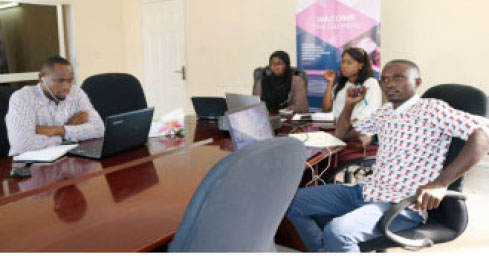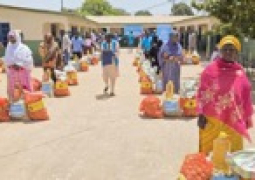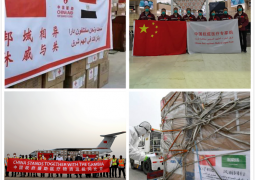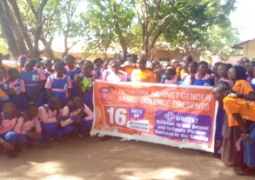
The training held on Monday and Tuesday 13th and 14th December 2021 respectively, focused on the General Requirements for the Competence of Testing and Calibration Laboratories.
It attracted 12 conformity assessment technicians drawn from the Food Safety and Quality Authority (FSQA), The Gambia Standards Bureau (TGSB) and National Agricultural Research Institute (NARI).
Funded by the European Union, the WACOMP-GM project is aimed at increasing competitiveness in The Gambia through enhanced quality compliance along the onion value chain, thereby strengthening the country’s competitiveness and enhancing its integration into the regional and international trading systems.
The project is the Gambian component of the broader West Africa Competitiveness Programme (WACOMP) which is funded through a 116-million-euro contribution under the 11th European Development Fund.
This programmatic initiative between the Economic Community of West African States, ECOWAS, and the European Union with the support of the West Africa Economic and Monetary Union Commission (UEMOA) includes 1 regional component and 16 country components, including the Gambia with an amount of 4 million € and implemented by the United Nations Industrial Development Organisation (UNIDO) and United Purpose (UP).
Mr. Joseph Ndenn, National Technical Coordinator of WACOMP-GM, said the training introduced the participants to the international standard to be met by testing laboratories seeking accreditation: ISO/IEC 17025: 2017.
The training, he added, marks the beginning of the implementation of the mutually agreed roadmap to accreditation agreed between UNIDO and the management of the 3 beneficiary institutions of the project: TGSB, FSQA and NARI.
“My expectations from the participants are that they will utilise the knowledge gained and share with their colleagues as the training was a privilege and rare opportunity,” he said.
Prof. Dr. Adalberto Vieira, co-facilitator of the training, who is also UNIDO expert on Quality Infrastructure (QI), said that ensuring reliable laboratory results is key to demonstrating compliance with the required regulations and be able to provide recognisable conformity assessment services to companies and other value chain agents aiming at accessing and remaining in new reference markets.
“The awareness training will contribute to the acquisition of knowledge on ISO/IEC 17025:2017 of technicians linked to The Gambian quality infrastructure, with special emphasis on those related to the onion and alike horticultural products’ value-chain conformity assessment,” said Prof. Dr. Vieira.
A participant, Marie Mendy, Principal Conformity Assessment Officer of The Gambia Standards Bureau (TGSB), expressed gratitude to the project for facilitating such a significant training.
“The knowledge acquired and lessons learnt during the awareness training will greatly assist us, as laboratory personnel, in the implementation of ISO/IEC 17025 requirements,” she noted.
ISO/IEC 17025:2017 specifies the general requirements for the competence, impartiality and consistent operation of laboratories. It is applicable to all organisations performing laboratory activities, regardless of the number of personnel. Laboratory customers, regulatory authorities, organisations and schemes using peer-assessment, accreditation bodies, and others, use ISO/IEC 17025:2017 in confirming or recognising the competence of laboratories.





